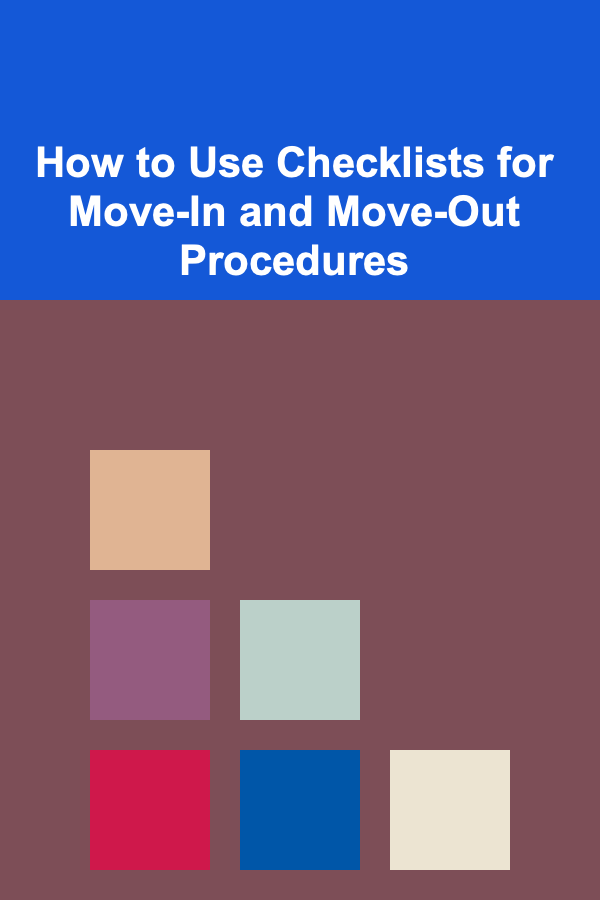
How To Live a Fulfilled Life with Minimal Possessions
ebook include PDF & Audio bundle (Micro Guide)
$12.99$8.99
Limited Time Offer! Order within the next:

In a world where consumerism is the norm and society constantly pressures individuals to accumulate more, the idea of living with minimal possessions might seem counterintuitive. However, there is a growing movement of people who are choosing a minimalist lifestyle not because it is trendy, but because it brings about a deeper sense of fulfillment, peace, and happiness. Living with fewer material possessions can lead to a simpler, more intentional life, where personal growth, relationships, and experiences take precedence over the pursuit of material wealth.
In this article, we will explore the concept of minimalism, its benefits, and practical ways to adopt a minimalist lifestyle that can help you live a more fulfilling life. Whether you are looking to declutter your home, streamline your habits, or find joy in the things that truly matter, this guide will offer you the insights you need to embark on your own minimalist journey.
The Essence of Minimalism
Minimalism, at its core, is not just about getting rid of physical objects. It is about simplifying your life to focus on what is truly important, while letting go of the distractions that don't contribute to your overall well-being. The minimalist philosophy encourages individuals to evaluate their possessions, habits, and even their relationships, in order to make space for things that bring more joy, peace, and meaning.
The Misconceptions of Minimalism
Before diving into how to live a fulfilled life with minimal possessions, it's important to address some common misconceptions about minimalism:
- Minimalism Means Living in Bare-Bones Conditions: While minimalism can involve owning fewer items, it doesn't mean living without the things that bring comfort or joy. Minimalism is about intentionality, not deprivation.
- It's Only About Material Things: Minimalism extends beyond possessions. It's about simplifying all aspects of your life, including your schedule, relationships, and mental clutter.
- Minimalism is Extreme: You don't have to get rid of everything to embrace minimalism. It's about finding balance and making intentional choices to only keep what serves your life well.
- Minimalism is Only for Young People: Minimalism is a philosophy that can benefit people of all ages. Whether you are in your 20s or 60s, the principles of minimalism can help simplify your life and enhance your sense of fulfillment.
The Benefits of Minimalism
Adopting a minimalist lifestyle offers a multitude of benefits that go far beyond having fewer possessions. Here are just a few ways that minimalism can improve your life:
- Less Stress: A cluttered environment often leads to a cluttered mind. By reducing the number of possessions around you, you create a more peaceful and organized space, which can lead to reduced anxiety and mental stress.
- More Time: With fewer things to clean, organize, and maintain, you free up time to focus on more meaningful activities, such as hobbies, exercise, or spending time with loved ones.
- Financial Freedom: Minimalism encourages mindful spending, which can help you save money and reduce debt. When you focus on purchasing only what you truly need, you make more intentional financial decisions.
- Improved Relationships: By prioritizing people and experiences over things, you can deepen your connections with others and cultivate meaningful relationships.
- Increased Focus on Personal Growth: Living simply allows you to focus more on self-improvement, mindfulness, and other aspects of personal development that lead to a fulfilled life.
Practical Steps to Adopt Minimalism
Now that we understand the philosophy and benefits of minimalism, let's look at some practical steps you can take to begin living a more fulfilled life with fewer possessions.
1. Declutter Your Physical Space
The first step to living with fewer possessions is to start decluttering your environment. This can feel overwhelming at first, but breaking it down into manageable tasks will make the process much easier. Here are some strategies to help you declutter:
- Start Small: Begin with one area of your home---perhaps a drawer, closet, or desk. Completing small tasks will give you a sense of accomplishment and motivate you to keep going.
- Sort Items into Categories: As you go through your belongings, divide them into categories: Keep, Donate, Sell, and Discard. Be honest with yourself about what you really need and use.
- Use the "One-In, One-Out" Rule: For every new item you acquire, make a conscious effort to get rid of something you no longer need. This will prevent your possessions from accumulating again.
- Minimize Sentimental Items: Sentimental items can be some of the hardest to let go of. However, minimalism encourages you to cherish memories rather than things. Consider taking photos of sentimental items before parting with them, so you can preserve the memories without the clutter.
- Digital Decluttering: Don't forget about your digital space. Unsubscribe from unnecessary emails, organize your files, and delete apps that no longer serve a purpose.
2. Simplify Your Schedule
Minimalism isn't just about possessions---it's also about simplifying your time. If you feel overwhelmed by a packed schedule, consider evaluating your commitments and letting go of activities that don't align with your core values. Here are some tips for simplifying your schedule:
- Prioritize: Identify the most important activities in your life and focus on those. Eliminate or delegate tasks that aren't essential.
- Learn to Say No: Saying yes to every request can quickly lead to burnout. Practice setting boundaries and saying no to activities that don't align with your goals.
- Embrace Slow Living: Slow living is about taking the time to enjoy life's simple pleasures. Instead of rushing from one thing to the next, allow yourself to be present and savor each moment.
- Practice Mindfulness: Whether it's through meditation, journaling, or simply taking a few moments to breathe deeply, mindfulness can help you reduce mental clutter and stay focused on the present moment.
3. Be Intentional with Your Relationships
One of the most rewarding aspects of minimalism is that it encourages you to focus on the people who truly matter in your life. Here are a few ways to build deeper, more meaningful relationships:
- Quality Over Quantity: Rather than spreading yourself thin by trying to maintain countless superficial relationships, focus on cultivating a few deep, meaningful connections.
- Let Go of Toxic Relationships: Minimalism encourages you to eliminate distractions, and toxic relationships are some of the biggest energy drainers. Surround yourself with people who support and uplift you.
- Invest in Experiences: Rather than giving material gifts, consider giving the gift of time and shared experiences. Whether it's a hike, a concert, or a quiet dinner, these moments create lasting memories that are far more valuable than physical possessions.
4. Rethink Your Consumption Habits
To live a minimalist lifestyle, it's crucial to be mindful of your consumption habits. This doesn't mean you can never buy anything, but it does mean making more conscious decisions about what you purchase and why. Here are some guidelines to help you become a more intentional consumer:
- Buy Less, Choose Wisely: Before purchasing anything, ask yourself if it truly adds value to your life. Will it improve your well-being, make you more efficient, or enhance your happiness? If the answer is no, it's best to pass on it.
- Invest in Quality: When you do buy something, choose high-quality, long-lasting items rather than cheap, disposable products. This not only reduces waste but also saves you money in the long run.
- Embrace Secondhand: Purchasing secondhand items, whether it's clothing, furniture, or electronics, can be a sustainable and cost-effective way to meet your needs without contributing to overconsumption.
- Avoid Impulse Buying: The urge to buy something on a whim can be strong, but it often leads to regret later. Practice waiting 24 hours before making any non-essential purchases to determine if you really need it.
5. Focus on Experiences, Not Possessions
One of the core principles of minimalism is the belief that experiences provide more lasting joy and fulfillment than material possessions. Rather than spending money on the latest gadgets or trendy clothes, prioritize activities that enrich your life and create meaningful memories. Here are a few ways to incorporate experiences into your life:
- Travel Light: If possible, travel with only the essentials. Not only will this make your journey more enjoyable, but it will also help you focus on the experience rather than the things you bring along.
- Pursue Hobbies: Whether it's painting, hiking, cooking, or reading, engaging in hobbies allows you to explore your passions and grow as a person.
- Cultivate Gratitude: Practice gratitude for the things and experiences you already have. By focusing on what you're thankful for, you'll begin to appreciate the simple things that truly bring joy.
Conclusion: The Fulfillment of Minimalism
Living a fulfilled life with minimal possessions is not about depriving yourself or living in austerity. Instead, it's about being intentional with your choices and focusing on what truly matters. By simplifying your possessions, schedule, relationships, and consumption habits, you can create a life that is more aligned with your values and more focused on personal growth and meaningful experiences.
Minimalism isn't a one-size-fits-all approach---it's about discovering what brings you joy, peace, and fulfillment, and letting go of the distractions that stand in your way. Whether you want to declutter your home, reduce your stress, or live more sustainably, minimalism offers a path toward a simpler, more fulfilling life. So, take the first step today---declutter your space, simplify your schedule, and embrace the power of less to create more of the life you want.
Reading More From Our Other Websites
- [Screen Printing Tip 101] Step-by-Step: Creating Vibrant Designs Using Vinyl in Screen Printing
- [Skydiving Tip 101] A Day in the Life of a Skydiving Instructor: Behind the Scenes of the Drop Zone
- [Biking 101] How to Maintain Your Spin Bike for a Smooth Ride
- [Home Holiday Decoration 101] How to Add Holiday Vibes to Your Patio or Outdoor Space
- [Personal Care Tips 101] How to Use Deodorant to Manage Sweating Without Antiperspirants
- [Mindful Eating Tip 101] How to Leverage Sensory Journaling to Deepen Your Mindful Eating Practice
- [Rock Climbing Tip 101] Hidden Gems: Underrated Climbing Destinations for Your Next Adventure
- [Personal Financial Planning 101] How to Choose the Best Investment Apps for Your Financial Goals
- [Home Soundproofing 101] How to Soundproof Air Vents and Reduce Noise Transmission
- [Home Soundproofing 101] How to Soundproof Your Home Against Outside Noises

How to Create the Illusion of More Space in Your Home
Read More
How to Incorporate Yoga into Your Mindful Living
Read More
How to Make Family Cooking Time Enjoyable and Educational
Read More
How to Set Up a Fishing Gear Donation Program
Read More
How to Use Checklists for Move-In and Move-Out Procedures
Read More
Grasping the Latest in Epilepsy Treatment
Read MoreOther Products

How to Create the Illusion of More Space in Your Home
Read More
How to Incorporate Yoga into Your Mindful Living
Read More
How to Make Family Cooking Time Enjoyable and Educational
Read More
How to Set Up a Fishing Gear Donation Program
Read More
How to Use Checklists for Move-In and Move-Out Procedures
Read More